So you want to visit the Okavango Delta. One of Africa’s last wild havens, a hotspot for the African Wild Dog, home to the continent’s largest concentration of elephants and set apart from every other safari destination thanks to its wandering waters. Who can blame you?
It can, however, be daunting to know where to begin. Here’s our guide to holidaying in Botswana’s world-famous wilderness.
What is the Okavango Delta?
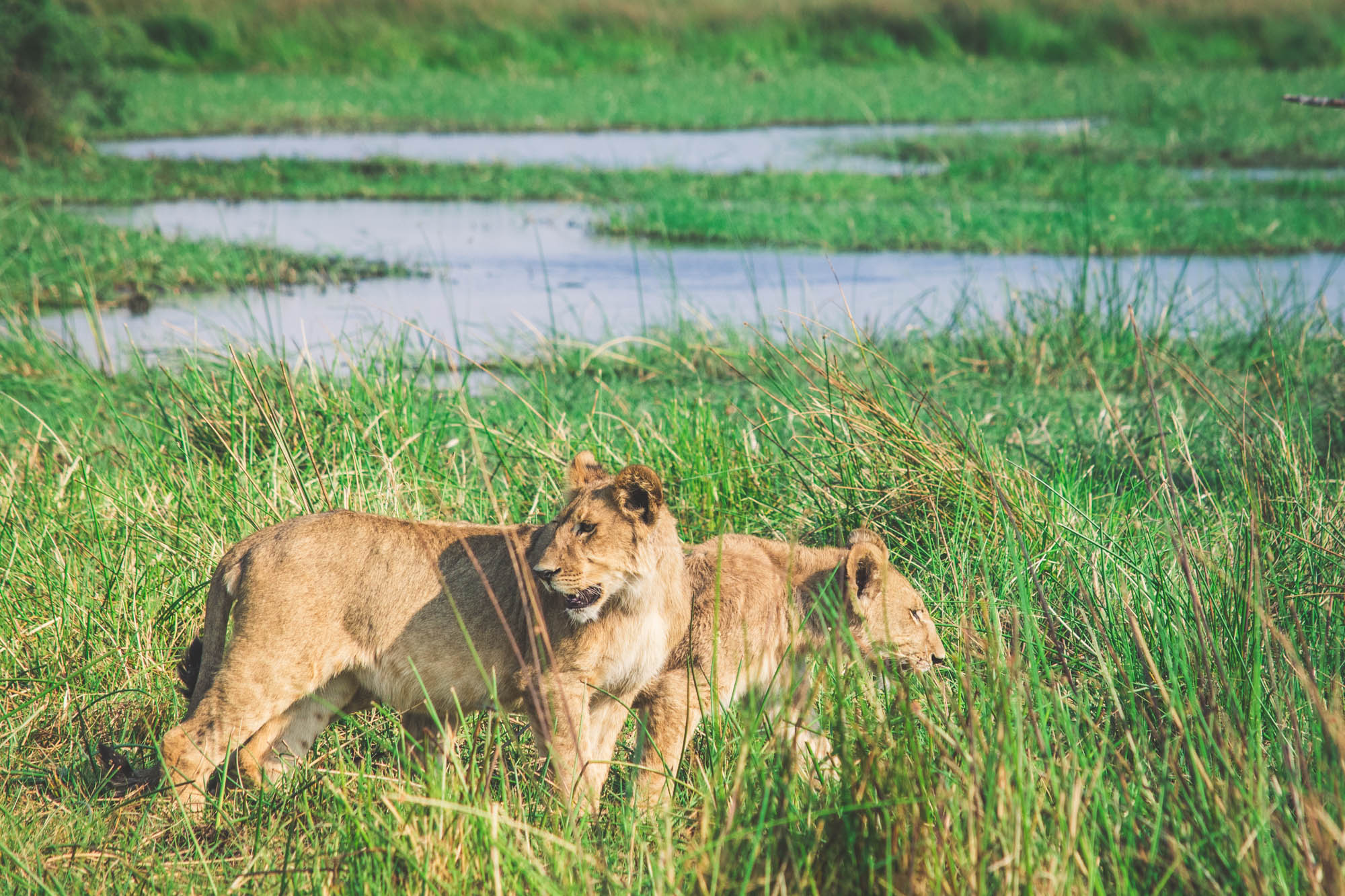
Image Credit: @Melaniejanevz
The Okavango Delta is a sprawling wilderness area in Botswana that remained inaccessible to human development thanks to mud, water and tsetse fly. It’s always been a mission to get there, which is why nature has been left to thrive. Technically, this is still the Kalahari Desert, but it has been totally transformed by this addition of water. Filled by water that floods down from the highlands of Angola every year the Kalahari becomes a swampy wetland.
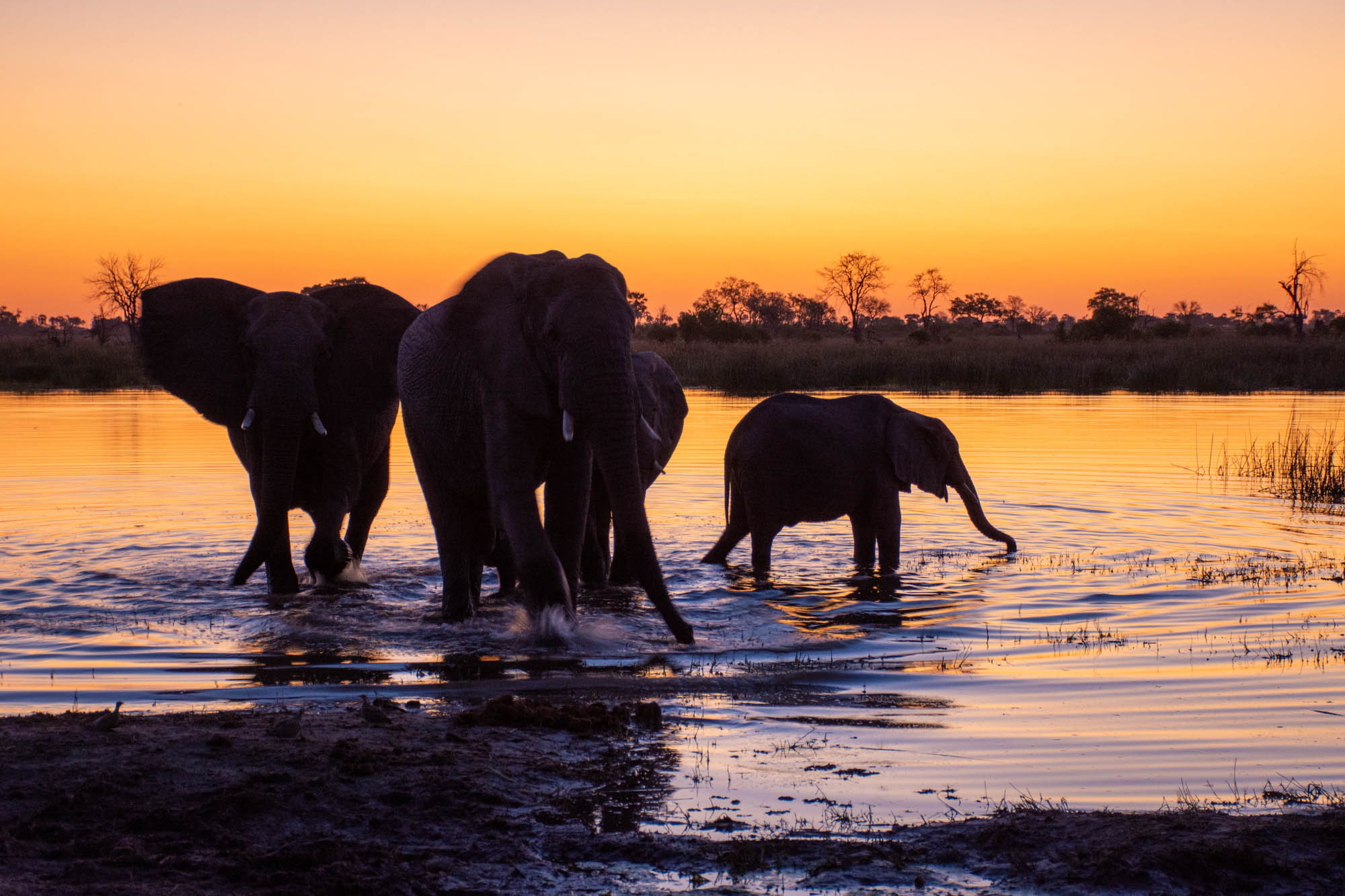
Image Credit: @Melaniejanevz
The core area of the Okavango to be the Moremi Game Reserve, which covers roughly one-third of the Okavango Delta and was proclaimed in 1963. It’s said to be the first reserve in Africa proclaimed by local residents (as opposed to colonial powers) under the leadership of the late Chief Moremi III’s wife, Mma Moremi.
Surrounding Moremi, there are numerous private and community concessions, where locals have lived on the edges of the Okavango for centuries.
The Okavango Delta was the 1000th site inscribed on UNESCO’s World Heritage List in 2014.
How do I visit the Okavango Delta?
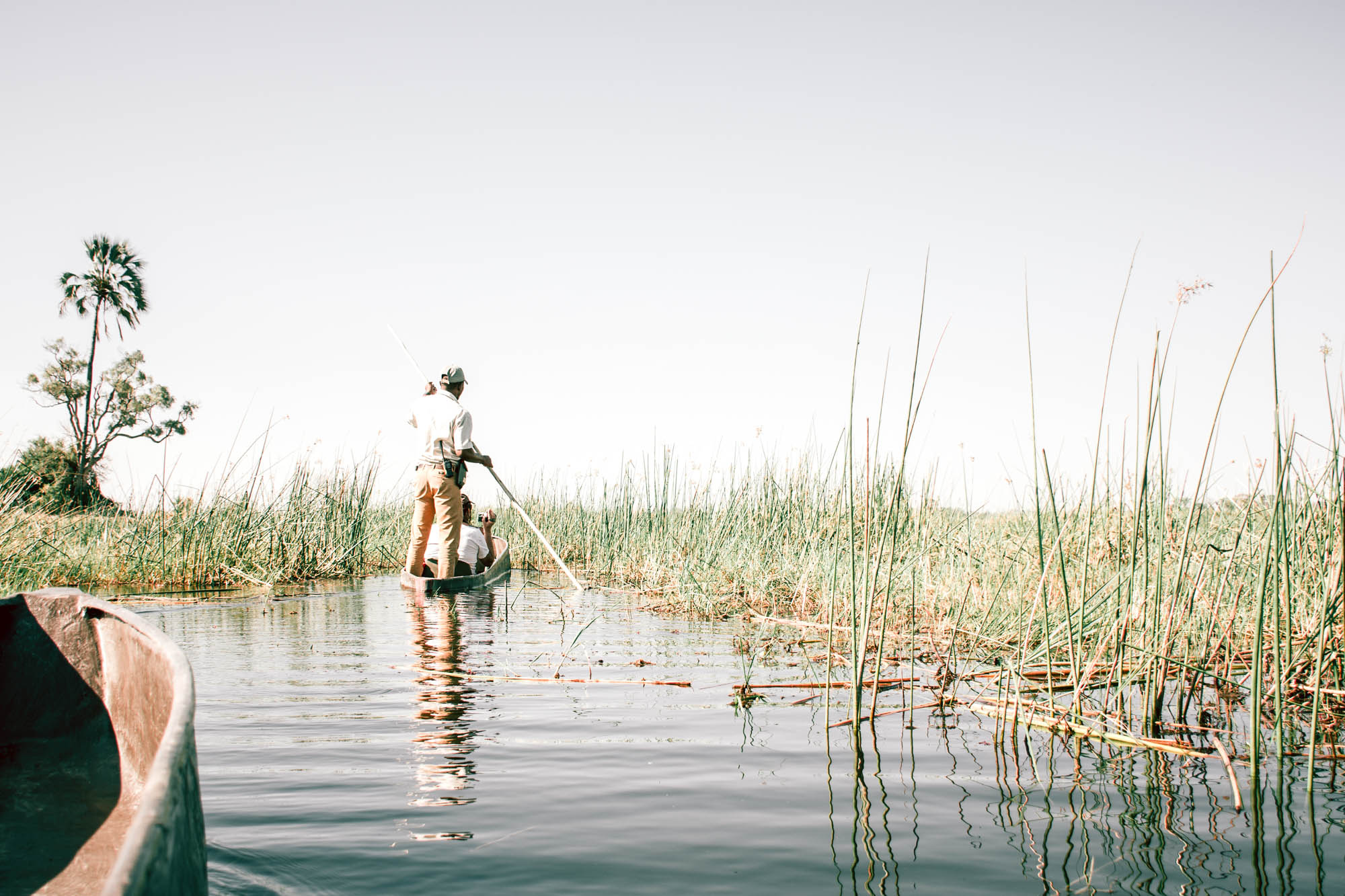
Image Credit: @Melaniejanevz
The Okavango Delta is one of the best places in the world to go on safari. An unofficial tourism capital, Maun is the turnstile to the Okavango. A dusty little town with a busy airport, flying is the most common way to travel here. There is a wide variety of upmarket lodges dotted around the Delta.
Most commonly, they offer full board, including food, drinks and activities such as game drives or water-based adventures in a safari boat or in a traditional dugout canoe, named the mokoro. There are no fences in this wilderness area of Botswana. Moremi is surrounded by vast concessions. This is where the vast majority of the luxury lodges lie. Here is a good thorough summary of stays in the Okavango Delta concession areas.
If you don’t fly, a fully equipped 4WD vehicle is essential. However, you can also join an overland adventure and bush camp along the way.
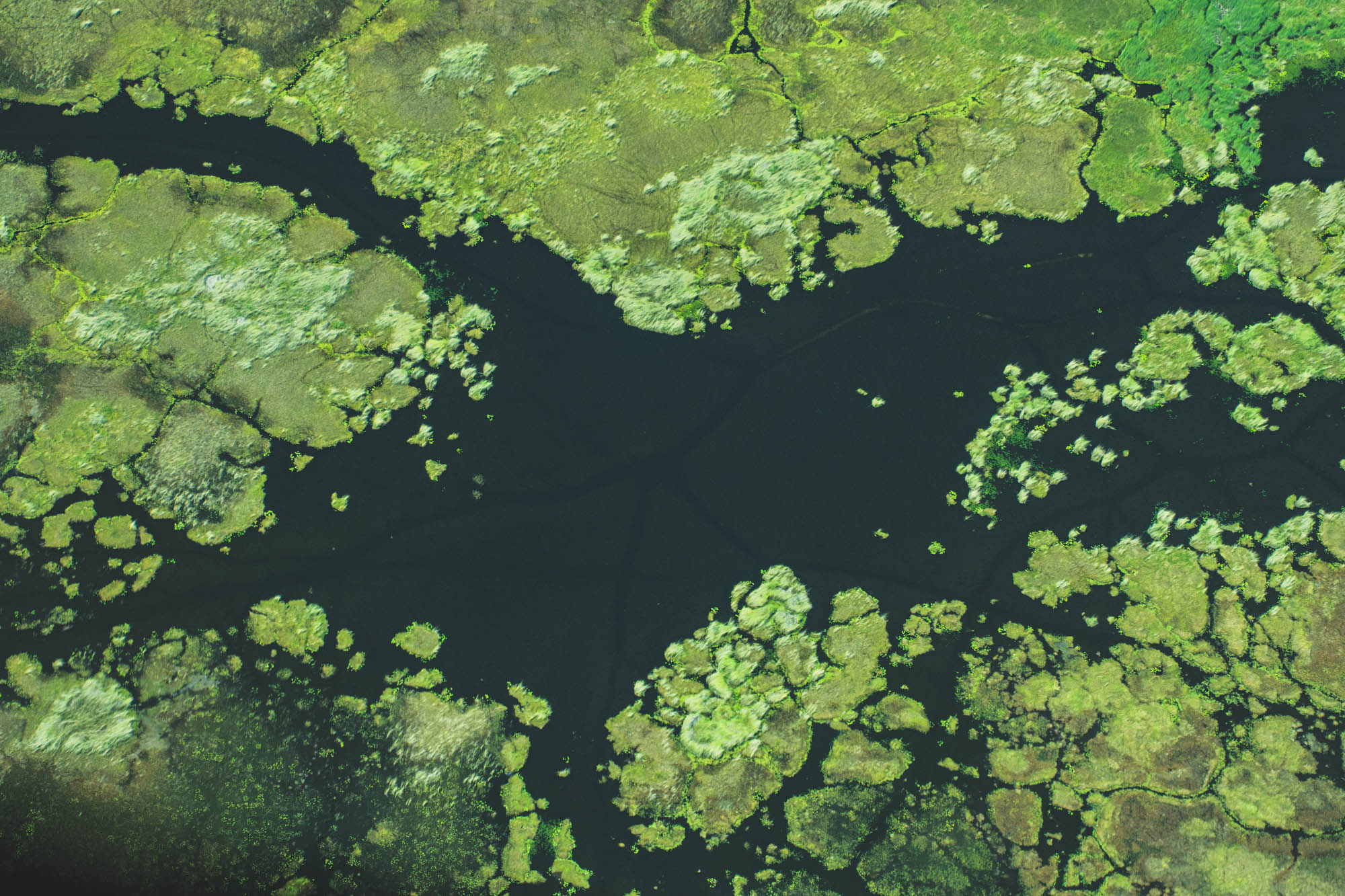
Image Credit: @Melaniejanevz
Another option for this wonderful wetland, is of course, by boat. Base yourself in the town of Maun and join a guided mokoro trip or day drive into the Moremi Game Reserve. If you’re set on self-drive, there’s also the Okavango Panhandle on the far western reaches of the Okavango Delta that is slightly more accessible.
Park fees and tourism levies tend to make this is a pricer holiday, but they help the world’s last great wilderness and contribute to its survival.
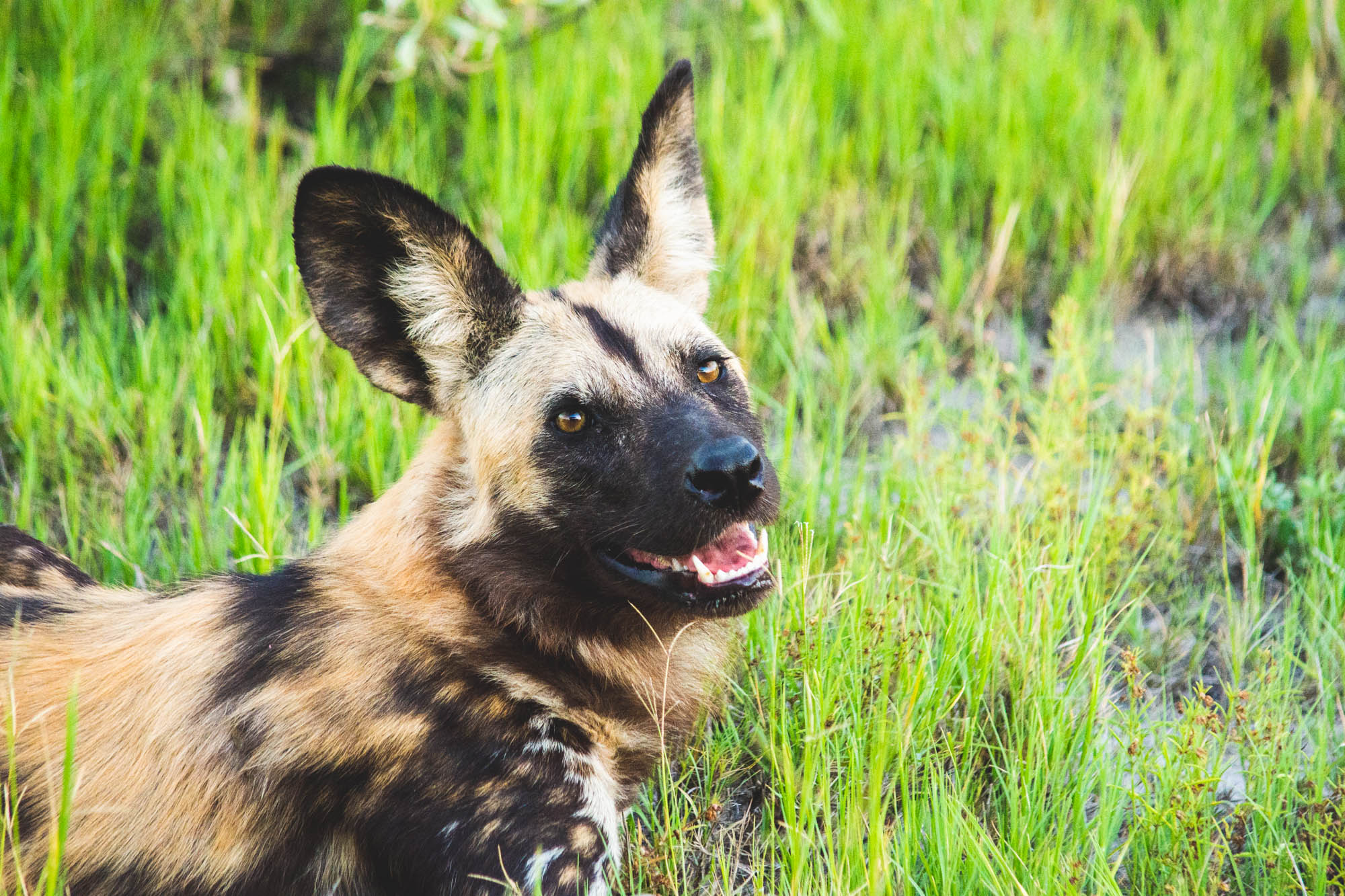
Image Credit: @Melaniejanevz
The Maun international airport serves a large selection of airlines – including South African Airways and Air Botswana. Non-stop flights to Maun are available from Johannesburg. The average flight duration from Johannesburg is 1 hour and 45 minutes.
Book your cheap flights to Maun with Travelstart.co.za
Where can I stay in the Okavango Delta?
Walk on Chiefs Island
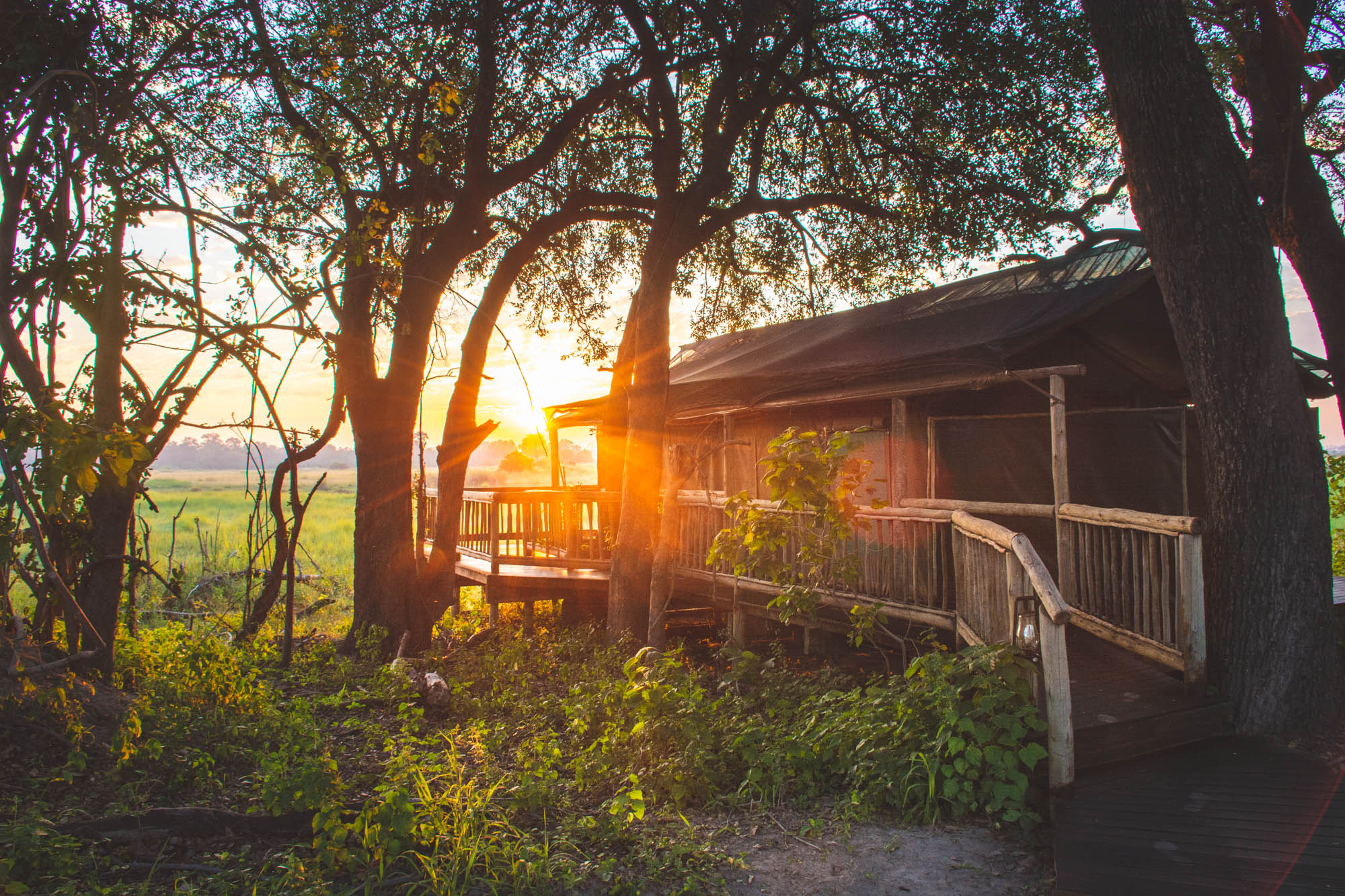
Image Credit: @Melaniejanevz
A more traditional camp of thatched and tented units, lodges like Moremi Crossing are a more affordable option for South Africans. Moremi Crossing is a real-deal Delta destination. Set on an island surrounded by high water, the more typical game drive is not operational. However, island activities include year-round mokoro trips on the waters of the Boro River and bush walks onto Chief’s Island.
Chief’s is the largest island in the Okavango Delta and is raised slightly higher than the rest of the swamplands so that when the waters descend, this area remains out of water. Thus, it becomes a wildlife retreat once the Okavango water levels rise. Oddballs Camp and Sango Safari Camp are some other more affordable stays to consider.
Mokoro trips organised out of Maun also tend to include a short walk on one of the many islands in the Delta.
Also read: Choosing the Best Time to Visit Botswana
Do an overnight mokoro trip from Maun
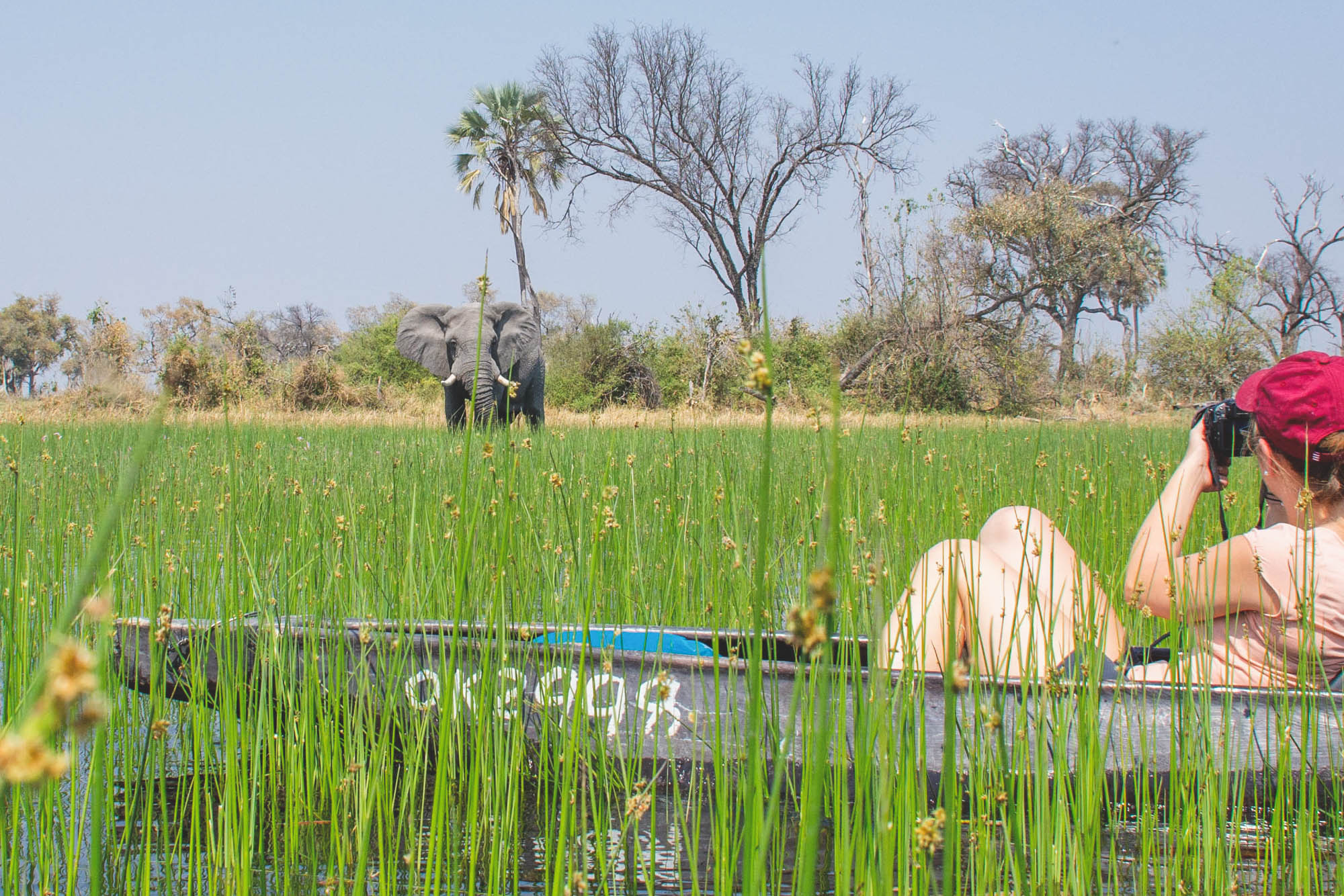
Image Credit: @Melaniejanevz
Gliding across the waters of the Okavango Delta is what sets this destination apart from every other safari. Enjoy the sweet silence when poled through these wilds. See beautiful waterlilies, tiny painted reed frogs, dazzling dragonflies and lap up the opportunities to meet elephants and hippo in their own habitats. Maun-based operators such as Delta Rain African Safaris offer one- and two-night mokoro adventures working with the Okavango Kopano Mokoro Community Trust and using only local guides.
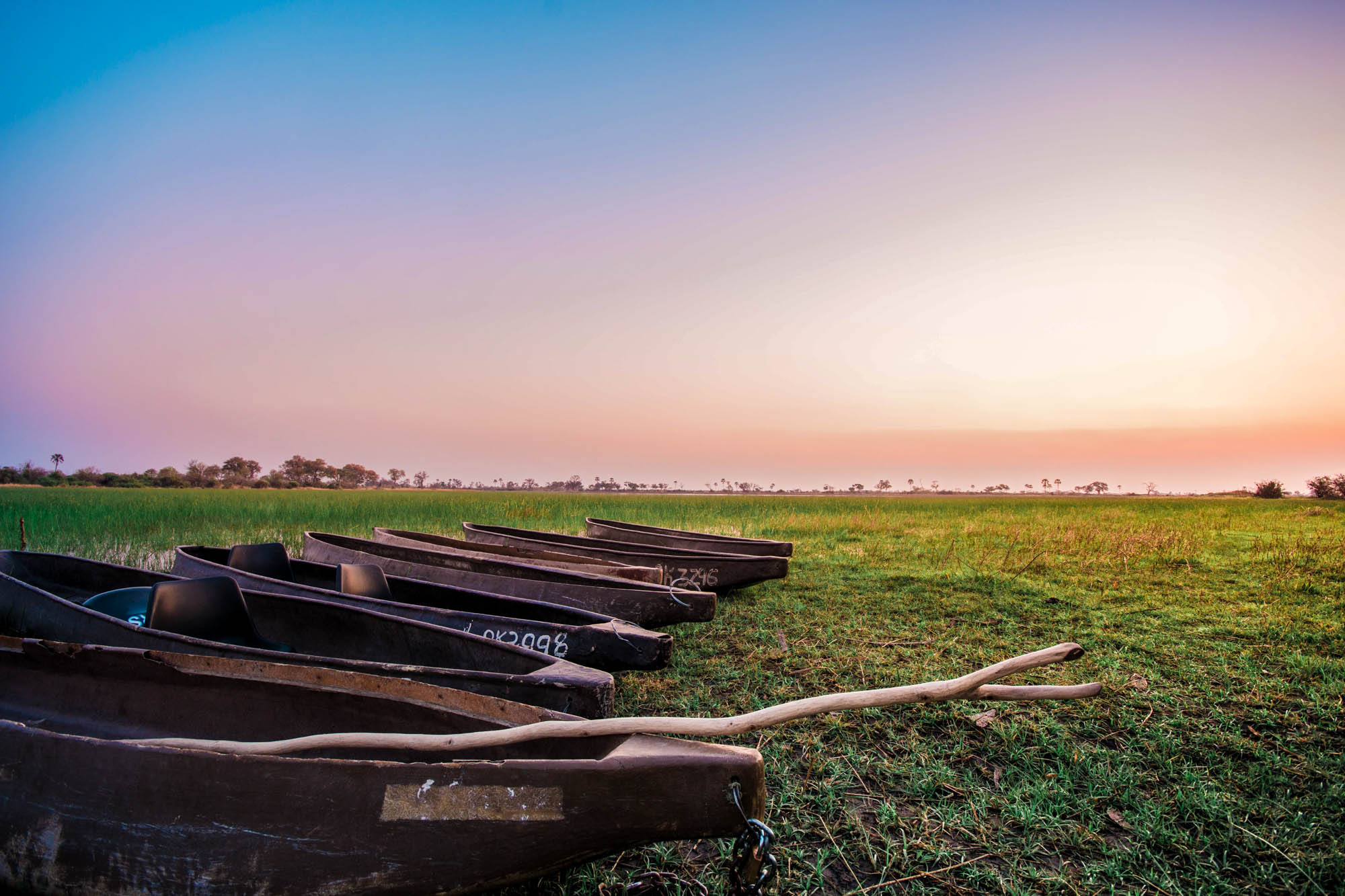
Image Credit: @Melaniejanevz
Choose from a more affordable, uncatered one-night mokoro adventure (you need to bring your own lunch, dinner and breakfast plus cooking paraphernalia and bedding) or book for full board. The trip also includes two guided bush walks and camping equipment. The best time to venture out in a mokoro is from July to October when water levels are higher.
Camp in Moremi Game Reserve
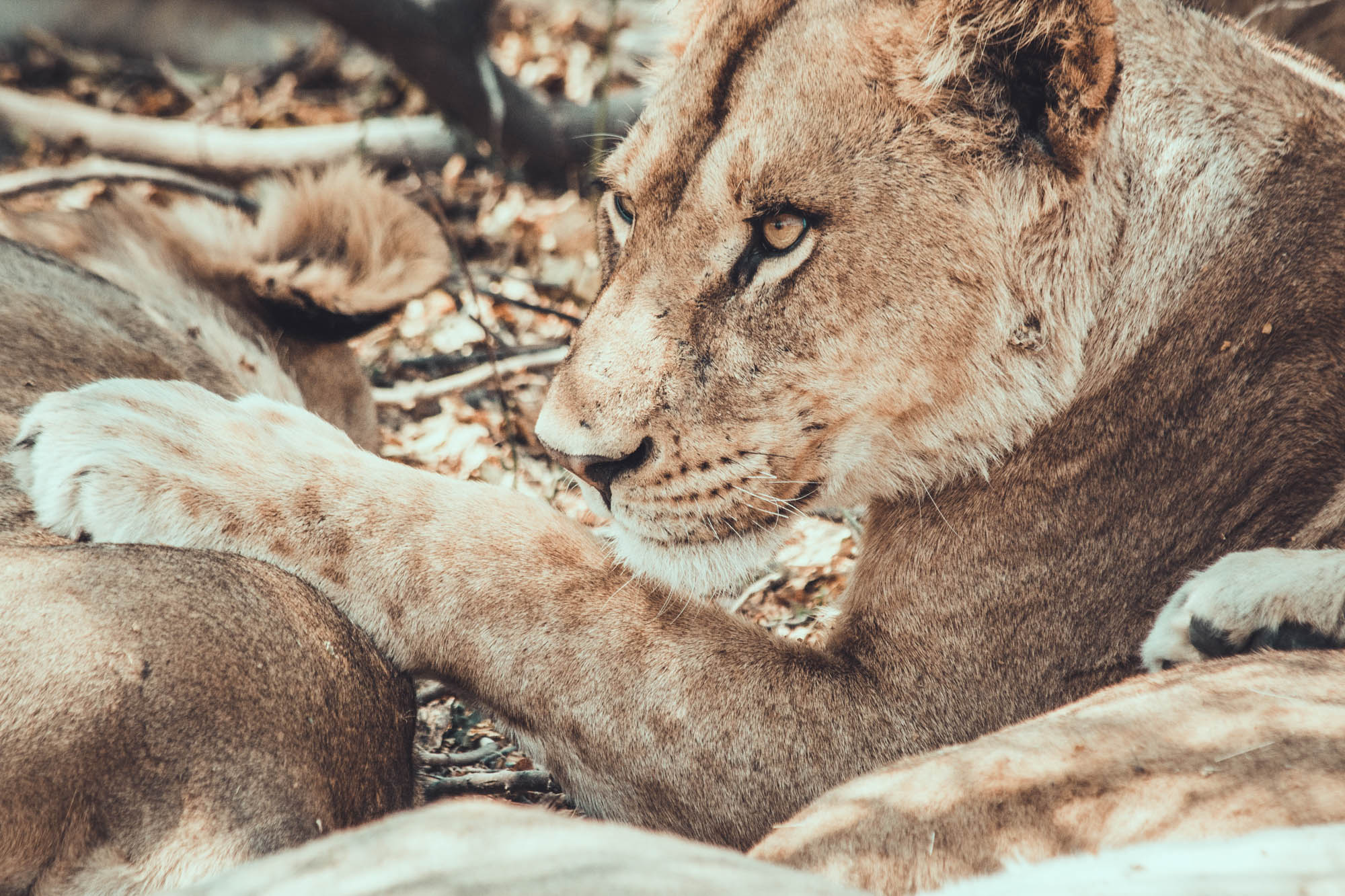
Image Credit: @Melaniejanevz
You will need a 4×4 to navigate the sandy tracks that cut through Moremi Game Reserve. There are four public campsites in Moremi. Often, they are booked well in advance. Each site is run by a private concession holder. Third Bridge is one of the most popular options – don’t forget to bring cash to pay park fees at the gate.
Magotho Camp run by the Khwai Community Trust is another popular option on the Moremi boundary. You don’t need to pay daily park fees, but there are no facilities.
Alternatively, join a Mobile Safari. Various operators in Maun have all the camping gear and vehicles to get you into Moremi and the surrounding wildlife areas. All you have to do is arrive. Often, this is a more affordable alternative to flying into the Delta and staying at a lodge.
Also read: 10 Incredible ways to explore Kasane, Botswana
Contribute to the community
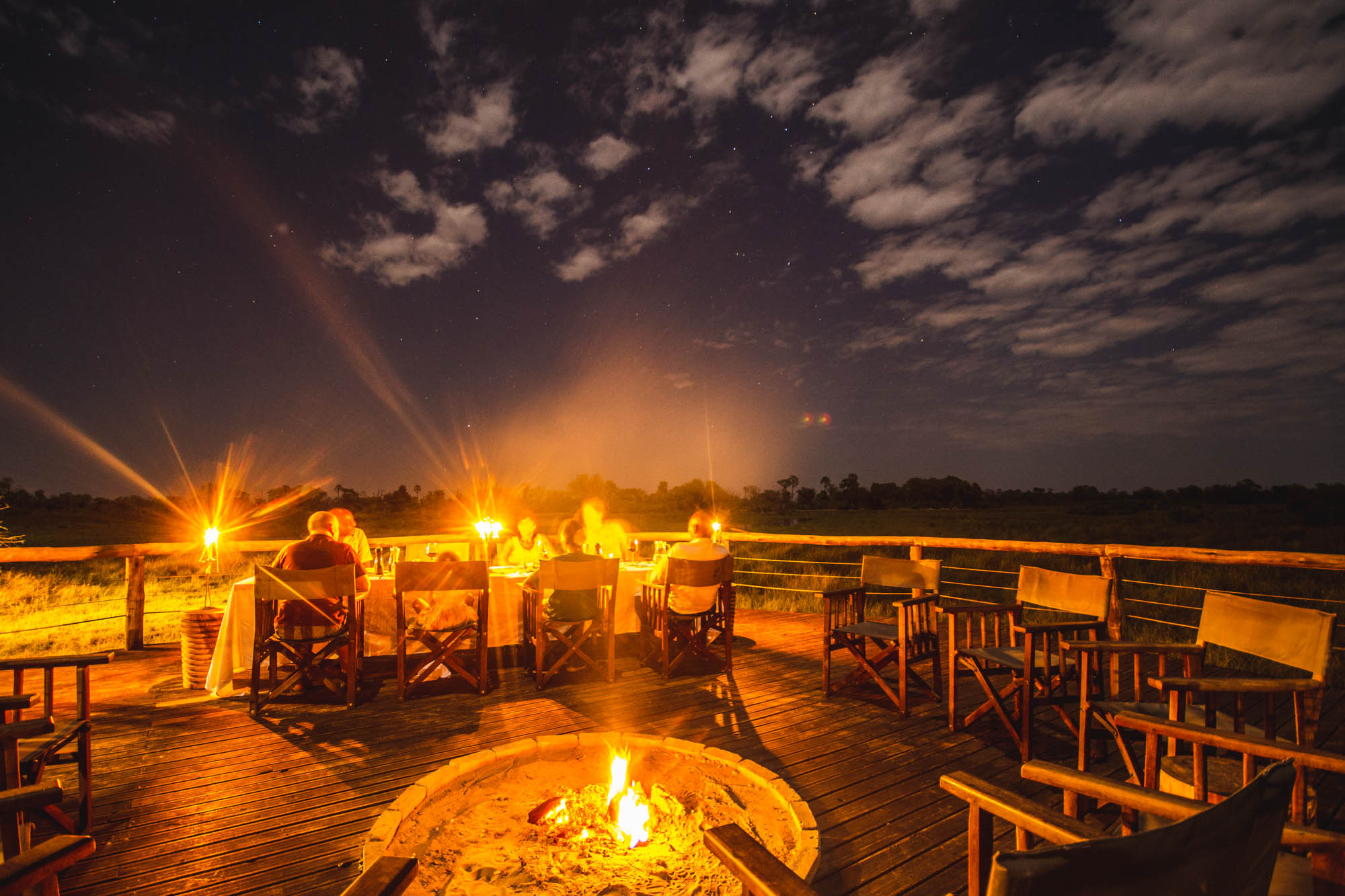
Image Credit: @Melaniejanevz
If you’re looking for a more responsible safari, opt for a stay that helps to benefit the local community.
Look out for travel agencies such as The African Wild, which is a 100% Botswana-owned and registered travel agency. This means that any funds accrued from travelling to the Okavango Delta will better contribute to the country’s GDP (as opposed to an internationally-based travel company). To ensure that every cent spent stays within the country, they only work with ethical lodges and operators.
Sitting on the eastern edge of the Okavango Delta, the Khwai Community Trust offers a variety of easily accessible stays just a two-hour drive from Maun. Outside of the income generated by its tourism activities, the Trust builds houses for destitute members of the village, contributes a monthly stipend to the elderly and pays annual dividends to its members.
Another example of community concessions at work is at Mma Dinare Lodge. Citizen owned too, this camp employs more than 60 people from nearby Sankuyo Village. Previously a hunting area, the community now relies solely on tourism. Help contribute financially to a community trust (and fund projects chosen by locals) when staying here.
Go fishing in the Okavango Panhandle
Renowned for its tiger fishing rather than the wildlife, you don’t need to have a 4×4 to explore this section of the Okavango. It’s accessible via the tar road between Maun and Namibia’s Caprivi Strip, with various affordable stays that offer boat trips along the winding channels of the Okavango Delta, exceptional birding and fishing. Guma Lagoon Camp and Drotsky’s Cabins are two of the best-known options in the area.
Travel tips for visiting the Okavango Delta
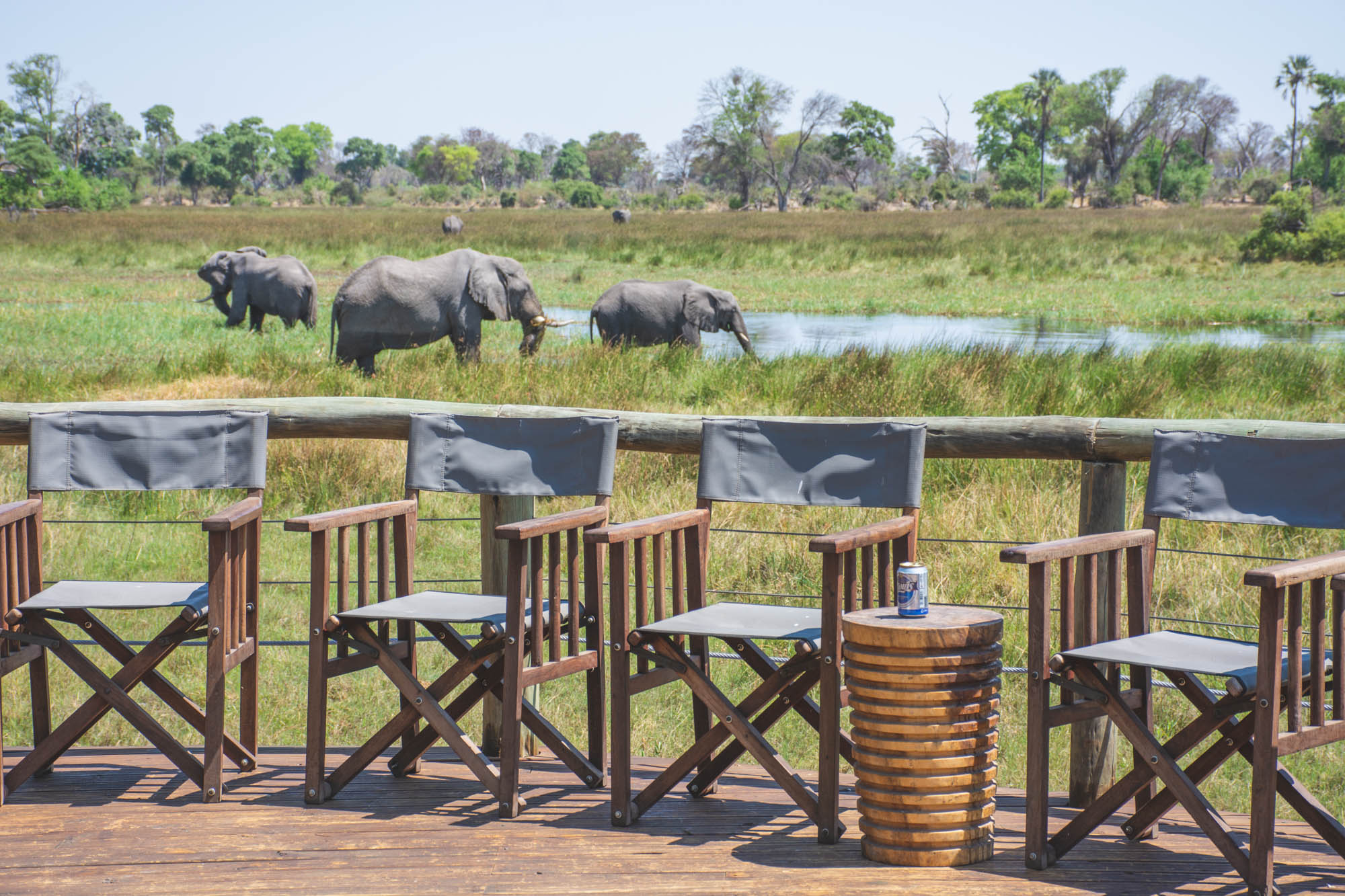
Image Credit: @Melaniejanevz
Download any travel apps you want to use beforehand. A birding app or wildlife guide will heighten your safari. There is no Wi-Fi or cellular reception at many lodges.
Bring biodegradable toiletries. By virtue of its remote location, many lodges and camps in the Okavango Delta are eco-friendly.
Travel between lodges is via small aircraft. If you’re susceptible to nausea, bring supplies.
Pack lightly. The aforementioned small aircraft have small holds, and there are luggage restrictions. Many lodges do provide free laundry services.
Pack baby clothes. Ask your safari stay what initiatives they support. For example, Kwando Safaris has teamed up with Pack for a Purpose, an initiative that allows travellers like you to make a lasting impact in the community at your travel destination. Bring supplies for the Mummy’s Angels project to help make a difference in the lives of local children and families.
Bring cash for tips. Tipping is not obligatory, but it is commonplace. If service was excellent, then consider between $5 and $10 per day.
Sign up to our newsletter and be the first to know about all our cheap flight deals and travel tips.
*Disclaimer!
All information on this blog page was correct at the time of publishing and may change at any time without prior notice. Travelstart will not be held liable for loss or inconvenience resulting from the use of out-dated or incorrectly noted information.